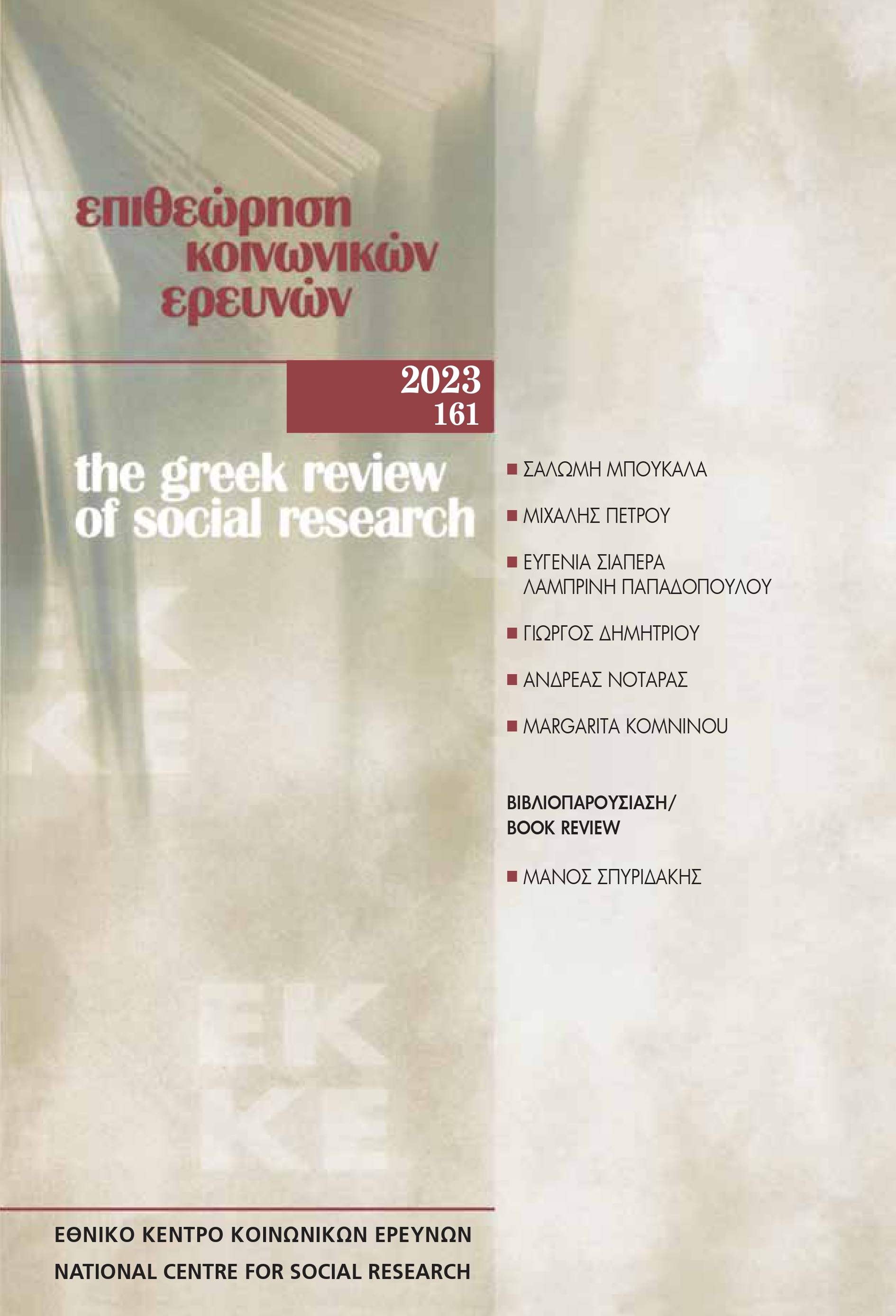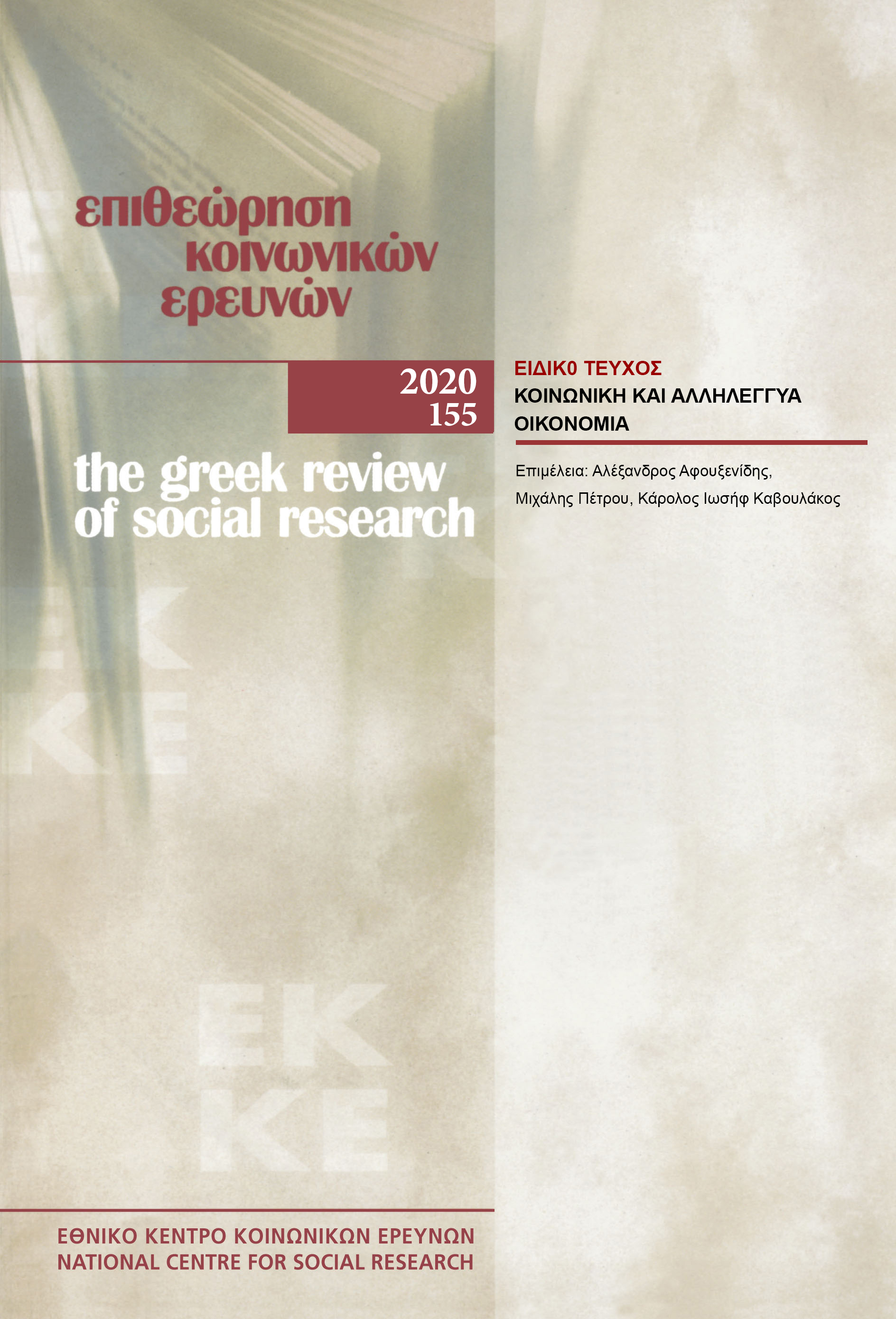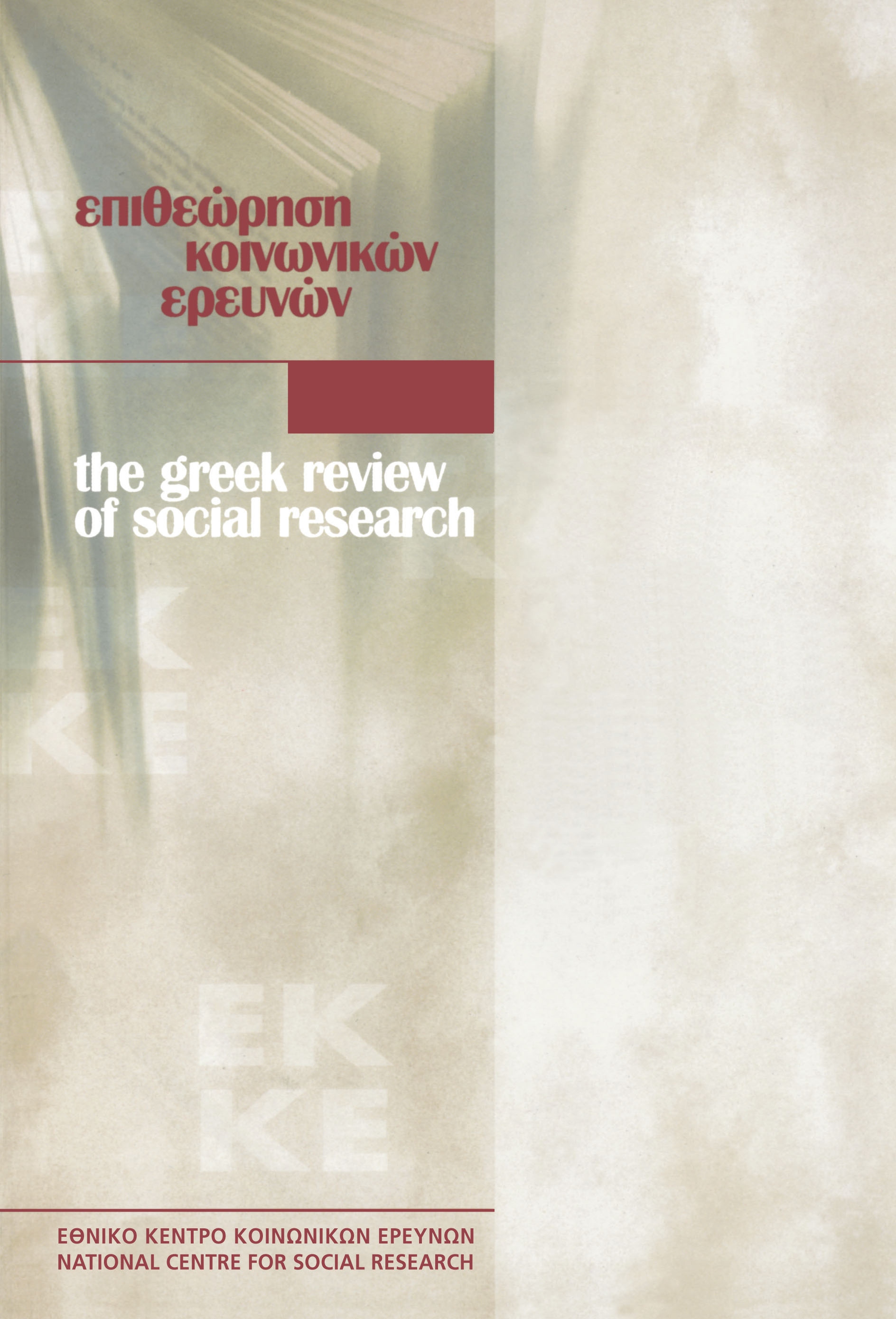Exploring the relationship between far-right online cultural and political activism with physical space. Examples from an island of the North-eastern Aegean

Abstract
The paper aims to investigate the relationship between far-right political culture and ideology, as being developed on social media, and their social influence in the public space. Based on field research findings on the island of Lesvos in the fall of 2021, it attempts to clarify how far-right political and cultural activism via online social media and information interferes with, interacts and feeds far-right activism in the physical space.
Article Details
- How to Cite
-
Petrou, M. (2023). Exploring the relationship between far-right online cultural and political activism with physical space. Examples from an island of the North-eastern Aegean. The Greek Review of Social Research, 161, 35–72. https://doi.org/10.12681/grsr.35004
- Issue
- 2023: 161
- Section
- Articles

This work is licensed under a Creative Commons Attribution-NonCommercial 4.0 International License.
Authors who publish with this journal agree to the following terms:
- Authors retain copyright and grant the journal right of first publication with the work simultaneously licensed under a Creative Commons Attribution Non-Commercial License that allows others to share the work with an acknowledgement of the work's authorship and initial publication in this journal.
- Authors are able to enter into separate, additional contractual arrangements for the non-exclusive distribution of the journal's published version of the work (e.g. post it to an institutional repository or publish it in a book), with an acknowledgement of its initial publication in this journal.
- Authors are permitted and encouraged to post their work online (preferably in institutional repositories or on their website) prior to and during the submission process, as it can lead to productive exchanges, as well as earlier and greater citation of published work (See The Effect of Open Access).




